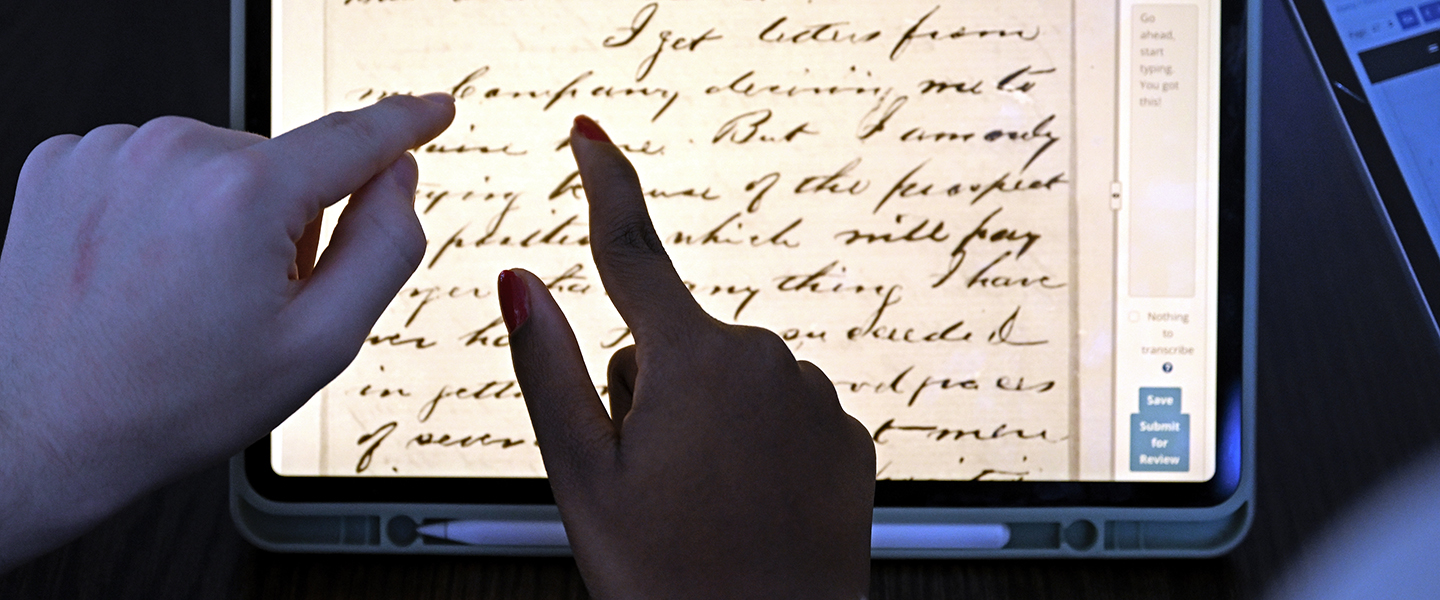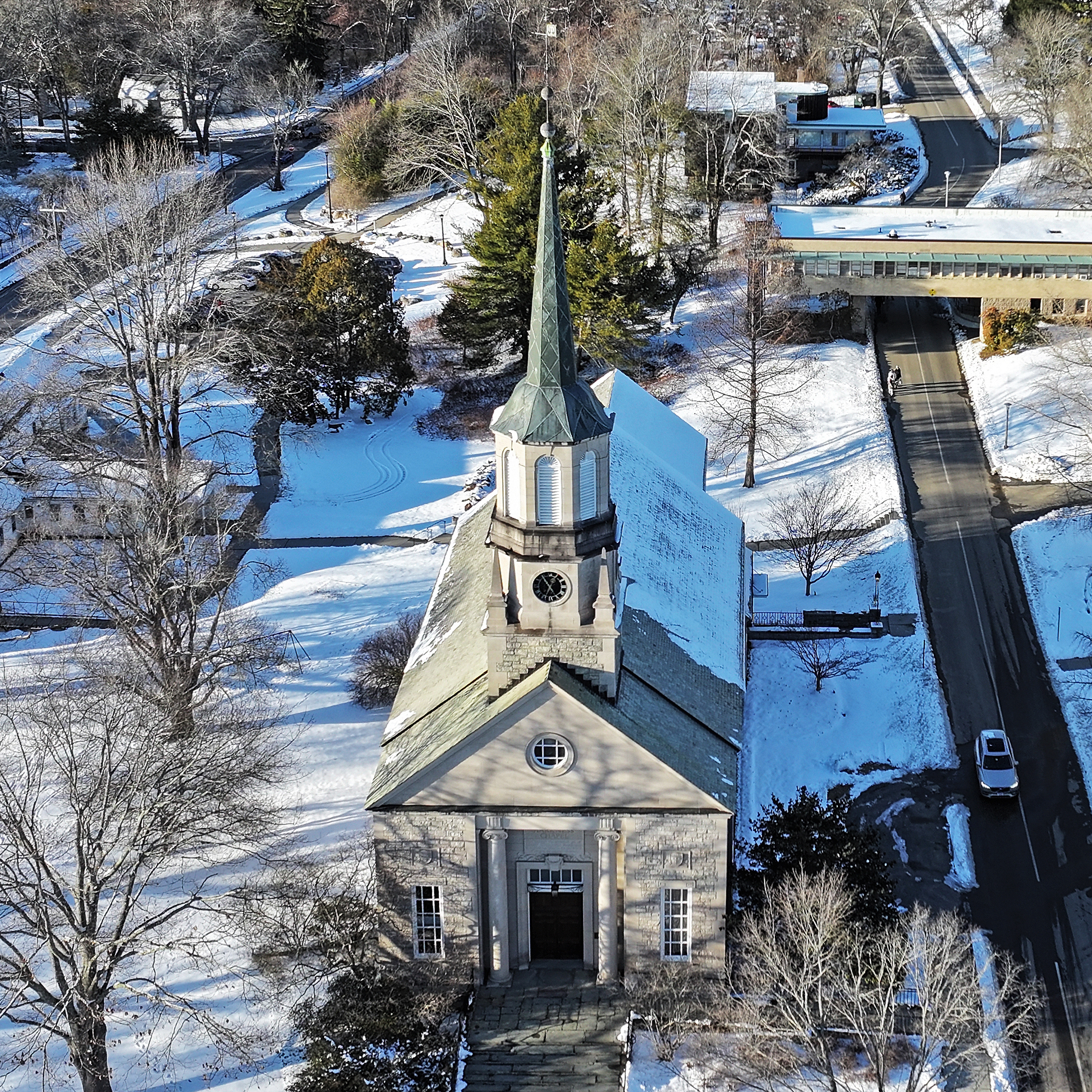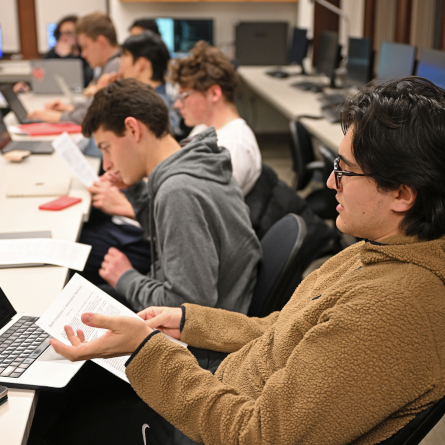
Conn participates in Douglass Day Transcribe-a-thon
The Connecticut College community joined a nationwide crowdsourcing effort to transcribe letters written to and by Frederick Douglass, a Black activist who was born into slavery in Maryland in 1818, escaped to New York City at age 20, and went on to become an internationally renowned antislavery lecturer and writer. February is Black History Month in part due to Douglass celebrating his unknown birthday on Feb. 14, now known as Douglass Day.
Shain Library staffers Jessica McCullough, director of research support and curricular technology; Andrew Lopez, research support librarian and interim director of Africana Studies; and Lyndsay Bratton, director of digital scholarship, brought the campaign to Conn.
“Getting students to engage with these projects is great because it shows them how primary sources and documents get put on the web,” Bratton said. “Stuff that they use all the time in their research but don’t necessarily think about how it got there.”
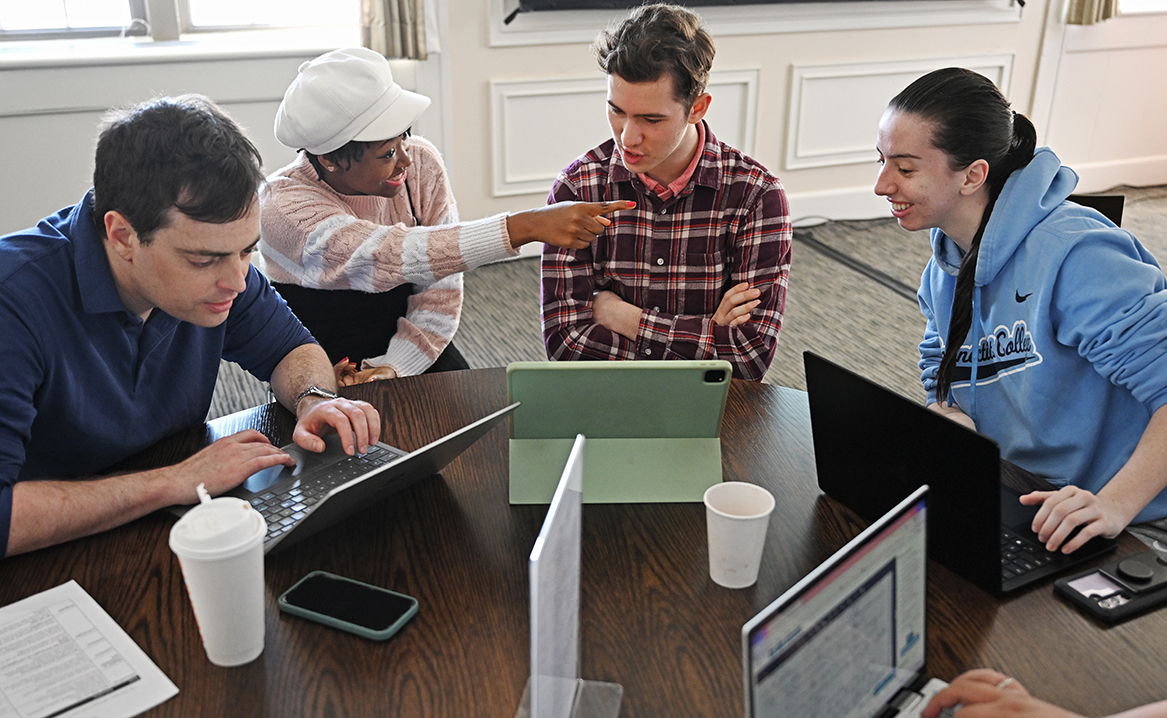
On Feb. 14 between 9 a.m. and 3 p.m., students and professors gathered around tables in the Blaustein Humanities Center’s Hood Dining Hall staring intently at their laptop screens as they worked to decipher the elaborate 19th-century cursive handwriting adorning some of the General Correspondence series of the Library of Congress’s 8,731 pages of the Frederick Douglass Papers.
“It was really fun. We kept hearing students saying, ‘This is so cool!’” McCullough said. Bratton added, “They jumped right in.”
Zach Wheat ’26, a computer science major and environmental studies minor from Northampton, Massachusetts, was camped out alone by the window that afternoon and had been there since the morning, he said. “I’m really interested in history and archiving, even though I’m not formally active,” Wheat explained. “I’ve been trying to accumulate and learn more about my family history. I’ve been given documents from my great-great-grandfather.”
Lopez and Bratton said some professors held their Wednesday classes at the event, including Visiting Assistant Professor of Education Lori West, who brought her “Critical Race Theory and Education” students; Associate Professor of Anthropology Joyce Bennett, who brought the students in her “Power and Inequality in a Global World” course; and Visiting Assistant Professor of History Taylor Desloge, who brought his class on “African American History from 1619-1865.”
Desloge reflected, “I would say that African American history, because it was denigrated for so long and locked out of institutions, is fundamentally a community endeavor. We started my class by talking about where the artifacts and documents at the Smithsonian Museum of African American History came from. So many were simply donated by families: heirlooms passed down through the generations as a way of keeping memories alive.”
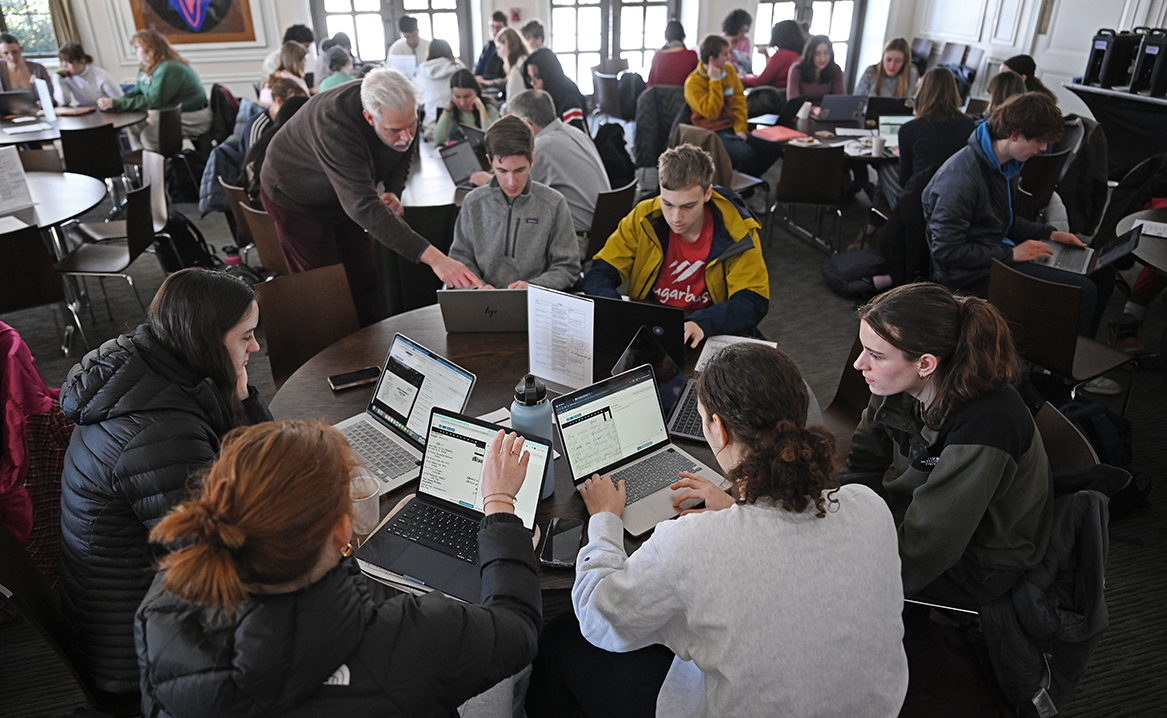
He said participating in the transcribe-a-thon “was a small way of getting my students involved in this multigenerational project. It was also an impactful learning experience. It was very rewarding to hear students share what they learned from the documents they were working with and ask questions about Douglass, his family and 19th-century America more broadly. We will be digesting these issues in class over the coming weeks.”
There is an earlier connection between New London and Douglass, who died in 1895. Douglass gave four lectures on slavery in New London in May of 1848. He wrote of the visit, “The first meeting was but thinly attended, and yet I was assured, that no lecturer on slavery ever called out a larger and more respectable audience in that place.”
He described a group that was, at first, indifferent to the horrors of slavery: “… all is calm and still, as though they were hearing a lecture on geology.”
But the city soon won Douglass over. “The two last meetings in New London were an exception to this description,” he wrote. “The audiences manifested a deeper interest in the subject, than I had hitherto seen in any part of Connecticut. I think New London about the best part in the State.”
And the deep interest in Frederick Douglass’s words continues 176 years later.
“The organizers said the crowdsourcing will remain active until every document is transcribed,” Lopez said.
The campaign is presented by Penn State’s Center for Black Digital Research along with the Library of Congress’s online transcription platform, By the People.
